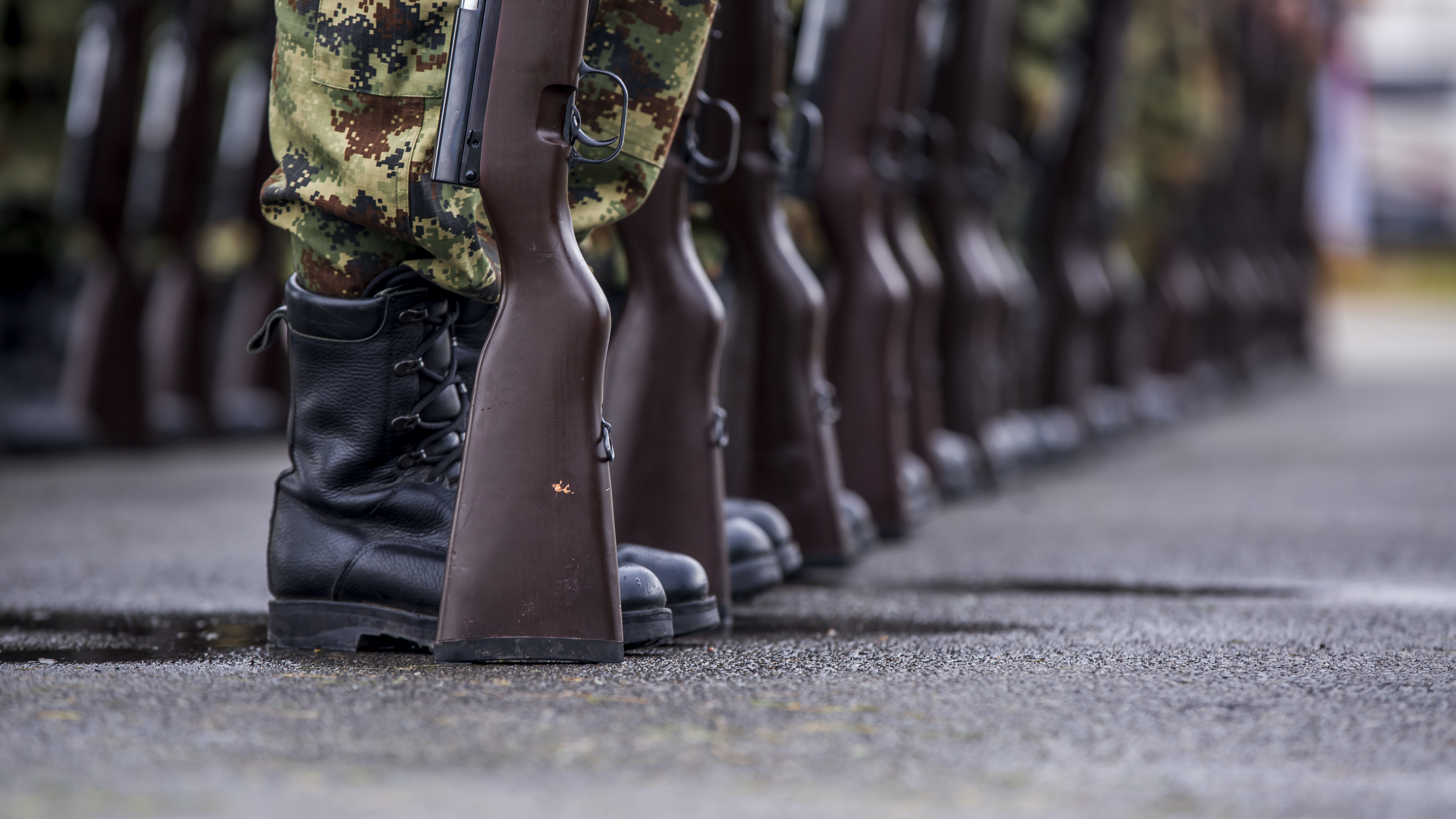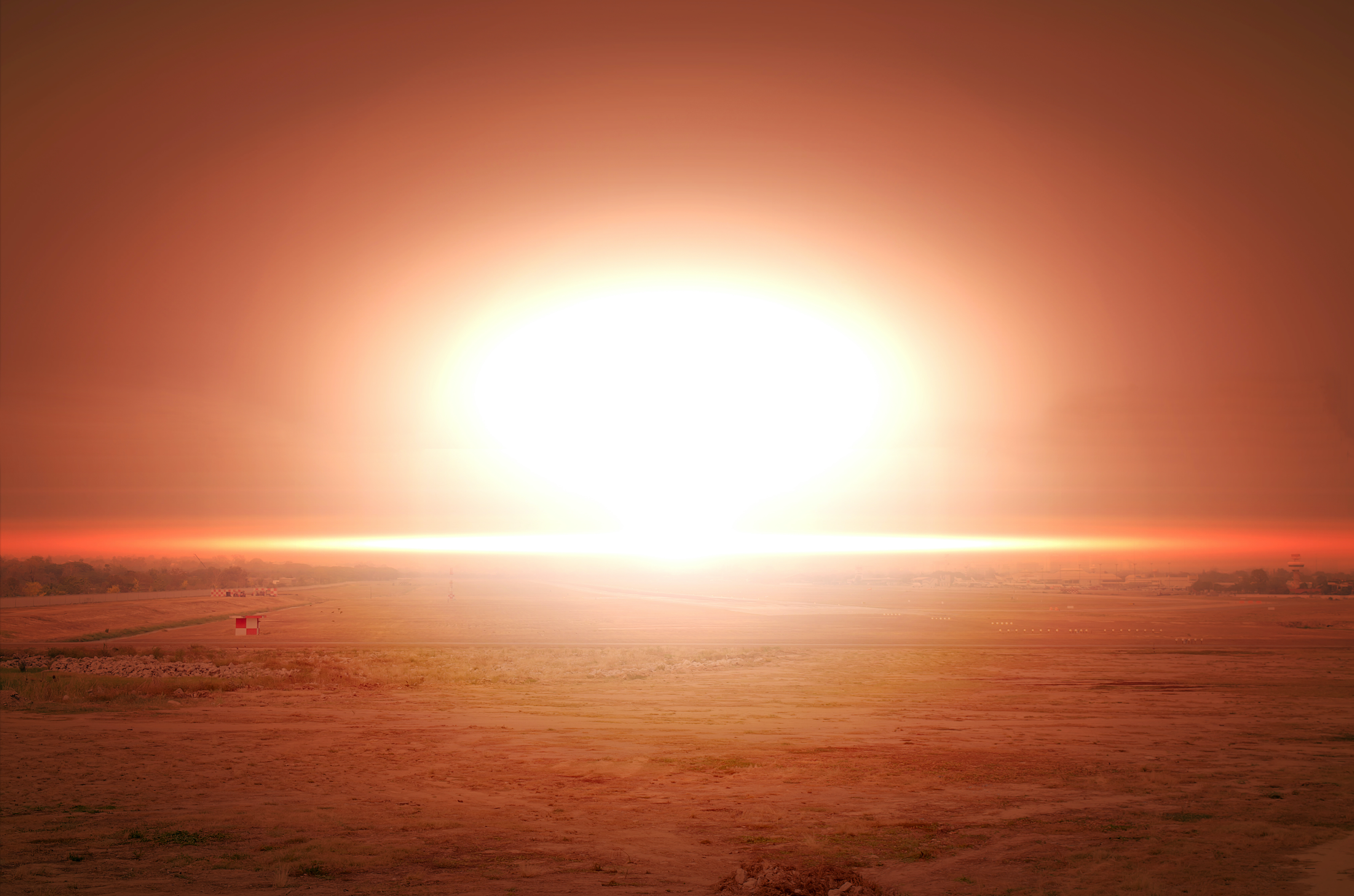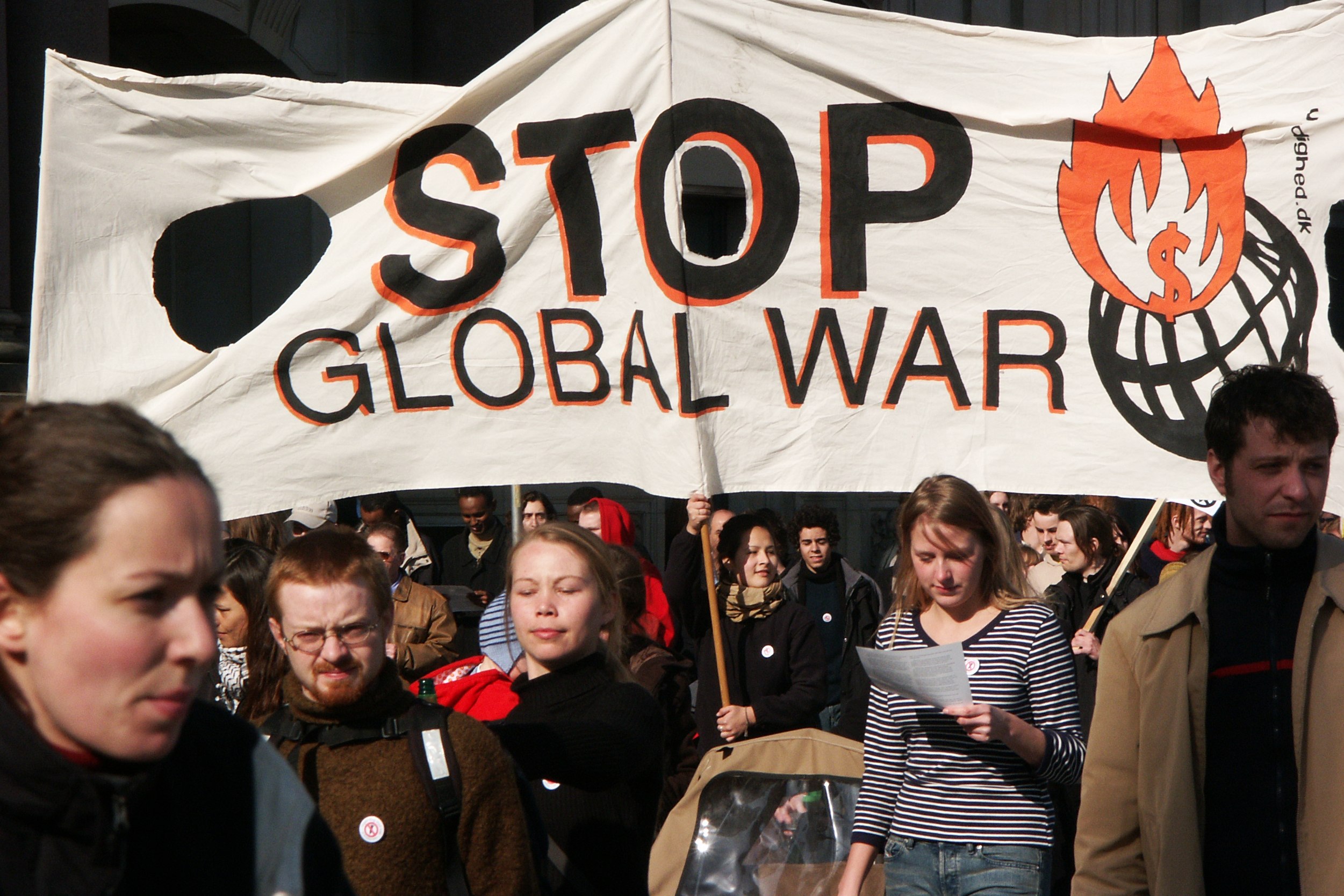There is a school of thought that says that war is deeply embedded in human nature, that evolution has left us with warlike characteristics: a propensity for violence, a propensity to move rapidly when we feel fear or when we feel anger and want to lash out and hurt other people. It seems to me – whether or not it's true, and I think there's a lot of debate – that doesn't explain why war happens because war involves organisation. War is highly organised, it’s the opposite of random violence, and a soldier who rushes around trying to bash the enemy is not a good soldier. If you look at what makes good soldiers, it's their discipline. It often takes years of discipline to turn them into people who will obey orders and who only kill when they are ordered. War, I believe, is purposive. It will use violence, but in a very calculated way, unlike the random violence that may suddenly overcome an individual. Thus, I don't think we're biologically programmed to fight wars.
Why wars happen
Professor of History
- I don’t think we’re biologically programmed to go to war. What is extremely important is culture, and fighting war has been seen by many cultures as acceptable.
- Nations fight because they want something, because they’re afraid, or for an ideology.
- There is always the danger that war will happen; that’s why we should reinforce international organisations and get powers to communicate with each other.
Programmed to fight?

Photo by Fotosr52
The cultural aspect
What is extremely important is culture; in certain cultures at certain times and certain places, fighting war has been acceptable. Governments have thought that war is a useful tool that can be used to achieve its ends, and sometimes war has been a useful tool. However, we have also had cultures – we can still see some of them today – in which those who fight are revered, in which military virtues are revered, in which being brave, being prepared to die and to suffer are viewed as virtuous, particularly for men.
Military virtues are very gendered. Throughout history, men have been expected, and are still expected, to be brave and prepared to fight, and I think that’s cultural. There may be a biological element, but the culture is far more important. It’s a culture that brings young men up to see themselves as people who ought to be warriors and, conversely, brings young women up to see themselves as people who should support the warriors, but not be warriors themselves.
Why countries go to war is a different matter. Even in democratic, peaceful societies, there will be times when people who don't come out of militaristic cultures, who haven't been brought up in this way, will feel that they have to fight. There are several reasons why people fight, but cultural values compel people to fight without even a war taking place.
Public support for war
Steven Pinker and others argue that many societies in the West are becoming much less prone to violence. He points to evidence, for example, that we no longer tolerate public cruelties, such as public executions. In fact, executions have themselves been abolished or are rarely used in many countries, and we no longer tolerate things like public violence and confrontations. However, this is not war. I think we have societies in which peaceful values are paramount, but that still doesn't mean that those societies couldn't go to war if they feel threatened or if they feel that they have a cause.
Often, people will surprise themselves. Americans didn't think they were going to go to war when the war started in Europe in 1939. A lot of Americans considered staying out of that war to be very important – the isolationist sentiment was quite strong in the United States – but that changed almost overnight when the Japanese attacked the Americans at Pearl Harbor. Suddenly, the Americans were enraged. They were furious. People lined up to join the military. Therefore, it really depends on the circumstances.
A lot of the British didn't want to fight a war again for very understandable reasons, nor did the French in the 1920s and 1930s. However, when they felt they were going to be attacked and had no alternative, they did support the war. Accordingly, the support societies will give to war depends partly on cultural values, but also partly on the circumstances. If you feel you have no choice but to fight, or if you feel you've been attacked or threatened, then you may well change your views on whether war is desirable.
Why nations fight
I see three main types of reasons. They fight because they want something; they are greedy for slaves, land and loot. There have been opportunistic wars made to take something that someone else has. Saddam Hussein attacked Kuwait at the beginning of the 1990s because he wanted its oil and its wealth. That was a very opportunistic war. He thought he'd get away with it, and cheaply.
People also fight because they're afraid. They feel that they are going to be destroyed and that they have little alternative. The Finns took on the Soviet Union in the Winter War of 1939-1940, even though they were tiny compared to the Soviet Union. They felt they had no alternative, and managed to push the Soviet Union back and to cause enough damage that the Soviet Union came to an understanding with them.
The final reason that individuals, countries, or groups will fight is for ideology, for a cause. The cause can be religious. For instance, Europe had religious wars in the 16th and 17th centuries, and people were prepared to die in the name of their religion and the belief, often, that they would have an afterlife. We've seen religious wars since the end of the Cold War. We've seen people in ISIS or Daesh, for example, motivated by religion. Ideologies such as Bolshevism or nationalism can also be every bit as powerful in motivating countries and groups of people to fight.
World War Three?

Photo by katueng
I would like to think that we are not living at a time when we might have yet another major or total war. The reason I would like to think that is because weapons are now so dreadful that the destruction of the Second World War, which was immense, will look like nothing by comparison with what we could potentially do to ourselves today. Accordingly, I'd like to think that people on all sides will draw back from unleashing a total war because it would be so immensely destructive that there may well be very little left of the planet worth living on, and very few people left to live on it.
There is always the danger that war will happen. Wars don't always happen because they've been carefully planned out – although it can be the case – sometimes wars happen by accident. Also, they happen when tensions run high, and both sides begin to get into positions where it becomes difficult to back down. We need to think very carefully today about where the tension spots, the potential flashpoints of the world are and think collectively, as a global community, about what we can do about these.
“If you want peace, prepare for war”
The rising tension between the United States and China is very worrying. I don't think either side wants war, but both are making preparations. If you want peace, as was once famously said, prepare for war. However, the danger in preparing for war is that you begin to amass all these weapons, and pressure builds to use them before they become obsolete. When you get into a tense situation with another country or another group of people, you begin to misread them. You begin to look at everything they do as a signal that they are out to get you or that they're planning something. There are these sore points in the world, and I think we need to think of ways in which we can reinforce the forces of peace, international organisations, and get powers to communicate with each other rather than getting into adversarial positions.
The important role of The United Nations
I think any international organisation is only as good as its members, and when you have members who don't support it or aim to use it for their own ends, then, of course, it gets weakened. The United Nations has suffered from this and, particularly recently, the Trump administration and the United States has made it very clear that it doesn’t prioritise international organisations. It doesn't believe in supporting them. It doesn't see their point. The gesture of withdrawing from the World Health Organization at a time when it’s clear that you need international cooperation to deal with a global pandemic seems very misguided. It weakens the whole range of international organisations. I think that's worrying.
The United Nations may be unsuccessful in some areas. People tend to hold it up as something that has been a disappointment, but it has played an instrumental role. One of its useful roles is that it provides a forum where the nations of the world can get together, talk to each other, and where – often behind the scenes – they can come to some sort of understanding. There's no other body in the world that does that where virtually every nation in the world is a member. The United Nations has also been useful in coming in after wars are over and trying to deal with post-conflict societies. This is something we need to think about because if you don't end a war successfully and remove the causes of conflict, or at least begin to rebuild societies, then you simply leave the door open for more wars to take place. It’s crucial to keep reminding ourselves and the next generations that these organisations are not just remnants of the past, they are essential in trying to keep a peaceful world.
Peace movements are effective

Photo by Roland Magnusson
Peace movements can be very important in putting pressure on their own governments. You see this clearly in democracies because democratic politicians have to think about being re-elected. Still, peace movements can make a difference even in autocracies. One of the things that helped to undermine the Soviet Union in its last days was increasing dissatisfaction and protests within the Soviet Union about what was happening in Afghanistan. Even though the protests were illegal, mothers of soldiers in Afghanistan came out and demonstrated, which helped to undermine the authority of the Soviet government in the 1980s.
I think the problem today is that we have several things we're worrying about collectively, and we can't worry about everything at once. Although perhaps we should be doing more to try and put limits on some of the new and terrifying weapons that are coming along and to try to limit nuclear proliferation, there isn't that much public support for it at the moment. The public is busy worrying about things like racism, societal inequalities, the Covid-19 pandemic and, looming over all of that, of course, climate change. There’s only so much we can worry about at any one time. Nevertheless, I agree that peace movements are very important and I think they're going to become more important in the future, as new generations of weapons come along and as tensions in the world begin to grow in certain areas. I hope they won't, but the evidence shows that there are a number of troubled spots in the world today.
How we should remember war
Societies have often used war and military triumphs as ways of bringing themselves together and ways of commemorating great moments in the past. My own feeling is that we should not be looking at war in the past as a way of strengthening our national identity, instead what we should be doing is looking at war as something that we got involved in that we regret. Still, we should also be looking at war as something that crosses borders. We should be thinking about those we fought.
One of the very positive things that has happened in the last few years is that former enemies have come together to commemorate wars in which they fought against each other. The French and the Germans have worked together to create a museum, for example, to commemorate the First World War. They have come together at commemoration services for the First World War and also for the Second World War, and I think this is important. The glorification of war is dangerous. We are more than our past triumphs, and we need to remember that.
Discover more about
Why wars happen
MacMillan, M. (2009). The Uses and Abuses of History. Penguin Random House Canada.
MacMillan, M. (2017). History’s People: Personalities and the Past. Profile Books.
MacMillan, M. (2008). Nixon and Mao: The Week That Changed the World. Random House.